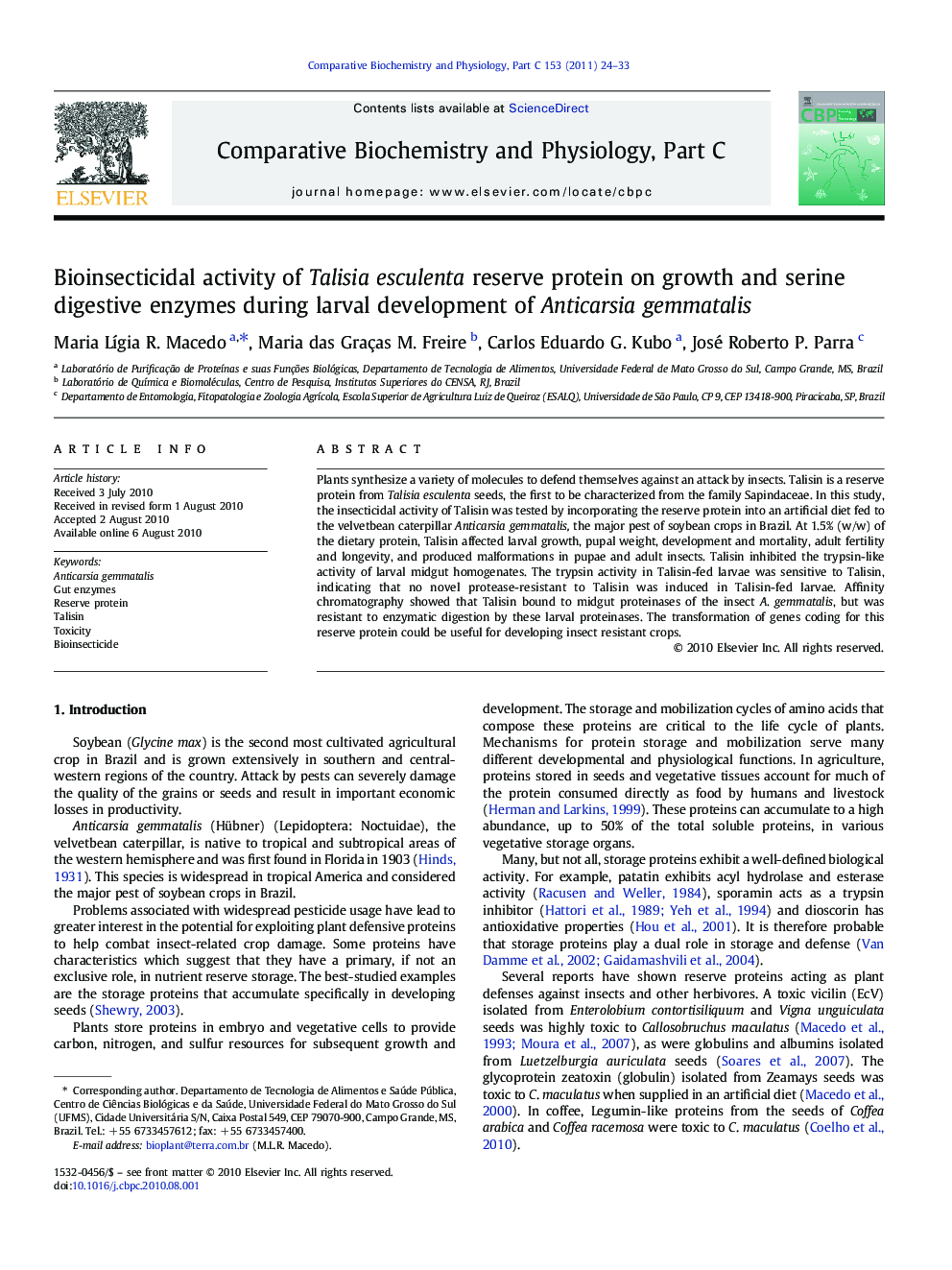| Article ID | Journal | Published Year | Pages | File Type |
|---|---|---|---|---|
| 1977527 | Comparative Biochemistry and Physiology Part C: Toxicology & Pharmacology | 2011 | 10 Pages |
Plants synthesize a variety of molecules to defend themselves against an attack by insects. Talisin is a reserve protein from Talisia esculenta seeds, the first to be characterized from the family Sapindaceae. In this study, the insecticidal activity of Talisin was tested by incorporating the reserve protein into an artificial diet fed to the velvetbean caterpillar Anticarsia gemmatalis, the major pest of soybean crops in Brazil. At 1.5% (w/w) of the dietary protein, Talisin affected larval growth, pupal weight, development and mortality, adult fertility and longevity, and produced malformations in pupae and adult insects. Talisin inhibited the trypsin-like activity of larval midgut homogenates. The trypsin activity in Talisin-fed larvae was sensitive to Talisin, indicating that no novel protease-resistant to Talisin was induced in Talisin-fed larvae. Affinity chromatography showed that Talisin bound to midgut proteinases of the insect A. gemmatalis, but was resistant to enzymatic digestion by these larval proteinases. The transformation of genes coding for this reserve protein could be useful for developing insect resistant crops.
